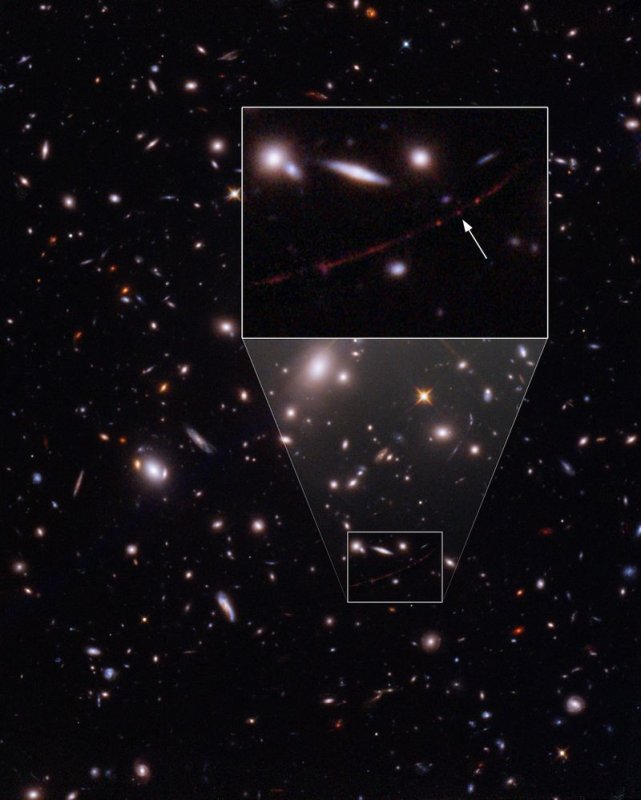
The Hubble detected Earendel through a warp in space that magnified the star's light. Photo courtesy of NASA
March 30 (UPI) -- The Hubble Space Telescope has spotted a star 12.9 billion light years away from Earth, the oldest and most distant object ever recorded, NASA revealed Wednesday.
The space agency said the telescope detected light from a star that existed within the first billion years after the so-called Big Bang. That's a record for the Hubble, whose previous oldest discovery was a star that was about 4 billion years old.
Scientists said they were able to single out the star by looking at it through space warped by a galaxy cluster identified as WHL0137-08. The warp created a "natural magnifying glass" that helped amplify light from the star, NASA said in a release.
Researchers compared the warping to a ripple in the surface of a swimming pool that increases magnification and brightness on the pool's floor.
The scientists who discovered the star, nicknamed Earendel, wrote about it in the journal Nature.
"We almost didn't believe it at first, it was so much farther than the previous most-distant, highest redshift star," said lead author Brian Welch of Johns Hopkins University.
"Normally at these distances, entire galaxies look like small smudges, with the light from millions of stars blending together. The galaxy hosting this star has been magnified and distorted by gravitational lensing into a long crescent that we named the Sunrise Arc."
NASA said the discovery opens the door for its new, more powerful James Webb Space Telescope to take a look at Earendel.
The JWST, which was launched Dec. 25, is the most powerful telescope ever launched into space and will use infrared technology to view objects farther away from Earth than ever before.
"With Webb we expect to confirm Earendel is indeed a star, as well as measure its brightness and temperature," said co-author Dan Coe at the Space Telescope Science Institute.
"We also expect to find the Sunrise Arc galaxy is lacking in heavy elements that form in subsequent generations of stars. This would suggest Earendel is a rare, massive metal-poor star."
The researchers believe Earendel is 50 times the mass of our sun and millions of times brighter.
No comments:
Post a Comment